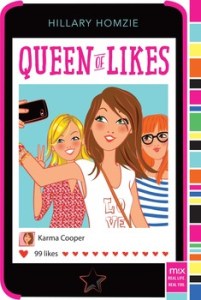Last summer, I took over the challenge of the Kansas/Missouri SCBWI regional volunteer critique coordinator position. One of my first tasks was to find ways for creators in our region to make connections and feel part of the SCBWI community even though our region covers a large geographical area. I had an idea for a virtual event we call Critique & Meet.
The Critique & Meet idea is a monthly virtual gathering that’s part social, part critique, and 100% the KSMO SCBWI community coming together to help each other create. It’s like an open-mic night combined with a speed-dating version of critiquing.
The goal is to provide a forum to meet other creators (perhaps even form outside critique groups), improve existing stories, and bounce story ideas off each other. Even if participants don’t create the specific category for a particular event, all are welcome to attend and participate in the critiques. The underlying philosophy is that we are all in this grand adventure together!
The basic setup for each virtual event gives four creators ten minutes to read and screen share their PB text, the first 500 words of a middle-grade/young adult project, or an illustration. After the presentation, a link is shared to a short critique questionnaire in a poll form for everyone to fill out. The results of each presenter’s critique poll are sent or shared with them upon event completion.
The virtual session is open to any regional SCBWI members interested in helping others improve their manuscripts or illustrations. At the end of every session, we have a social block where we can hang out and talk kidlit, life, how dirty my office is, etc. Here are the Critique & Meet goals and rules:
The goals are to:
- Improve our work and learn by helping others.
- Make connections.
- Find critique partners and form critique relationships. The connections you make are worth their weight in gold.
- Discover/Remind yourself that you are not alone.
The Critique & Meet Ground Rules
- Help not hurt. A critique is not a debate. Respect the creator and respect the people providing their critique thoughts. It’s all about helping each other create the best version of our work. When in doubt, choose nice!
- Learn from both sides of the table. The creator learns ways to improve their work. The audience learns how to read and listen analytically.
- Don’t share the work presented.
- Make connections.
We’ve done two of these monthly Critique & Meet events and I’ve been happy with the results. There were around 20 participants for each event and the creators presenting their work report they’ve received good information from the quick critique polls. We’ve even had participants interested in forming a few local critique groups.
The moral of the story is no matter where you are in your creative journey, having fellow creative travelers along with you is a great benefit. If you are interested in creating or hosting something similar to our region’s Critique & Meet or have ideas to help establish/maintain critique relationships, please comment below.

Adolphe Henri Laissement, Public domain, via Wikimedia Commons



